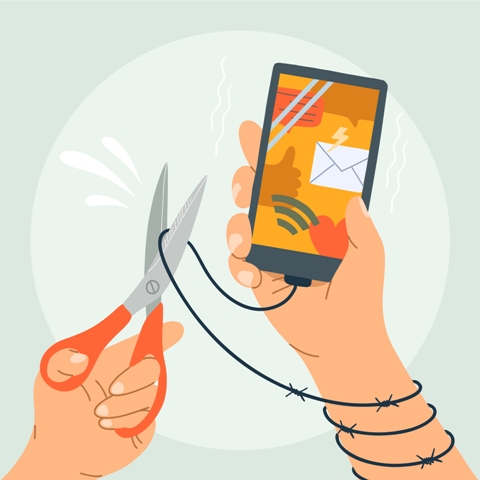Our cell phones are often our go-to source of entertainment, communication and information. However, constant phone use can be a major distraction, especially for students. If you find yourself reaching for your phone every few minutes, it’s time to take control.
Start by setting clear, achievable goals for each day. Whether it’s finishing a chapter, completing an assignment or studying for a test, having specific objectives will help you stay on track.
A well-structured study schedule can help you allocate specific times for studying, breaks and leisure activities. By dedicating certain hours to focused study, you will be less tempted to pick up your phone. Use a timer or a study app to stay disciplined and ensure you stick to your schedule.
Most smartphones have a “Do Not Disturb” mode that silences notifications and calls. Turn it on during study sessions to minimize interruptions.
Mindfulness is about being aware of your actions and their impact on your well-being. Before reaching for your phone, ask yourself why you are doing it. Are you bored, anxious or procrastinating? Identifying the reason can help you find alternative ways to address those feelings, like taking a short walk, practicing deep breathing or doing a quick stretch.
Social media is one of the biggest culprits of phone addiction. Consider setting limits on your social media usage by using apps that track and restrict your time on these platforms. You can also try deleting social media apps from your phone during busy periods or using them only on your computer.
Also you can replace phone time with other activities that you enjoy or that help you relax.
Breaking the habit of constantly checking your phone takes time and effort, but the benefits are worth it. Remember, your phone is a tool to enhance your life, not a distraction to control it. Stay committed and you will soon find it easier to stay present and productive.



